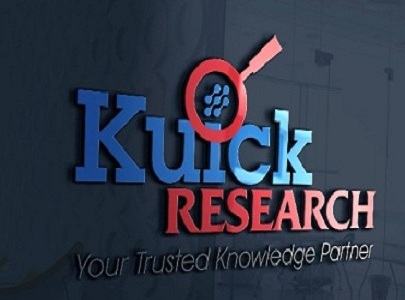
Global Cancer Antibody Drug Conjugate Market Size, Drug Sales, Drug Dosage, Price, and Clinical Trials Outlook 2029 Report Highlights:
The realm of cancer treatment is experiencing a surge of innovation that may greatly change how we currently diagnose as well as treat cancer. Clinical researchers and pharmaceutical companies continue to seek innovative solutions that offer enhanced efficacy and reduced side effects. Among the ongoing significant advancements, antibody drug conjugates (ADCs) have emerged as a groundbreaker in cancer therapeutics. This rapidly expanding market is transforming the treatment landscape, offering a new therapeutic option for patients globally.
Antibody drug conjugates harness the synergistic potential of monoclonal antibodies and potent cytotoxic drugs, delivering a strong strike against cancer cells. By exploiting the specificity of monoclonal antibodies, antibody drug conjugates can selectively bind to cancer antigens, increasing drug delivery directly to tumor sites. This targeted approach enables higher drug concentrations at the desired location while minimizing harm to healthy, normal tissues.
The antibody drug conjugate market is experiencing remarkable growth, driven by several key factors including the increasing cancer incidence rates, rowing demand for effective and personalized treatment options and advancements in antibody engineering and drug delivery technologies are propelling the market forward. Moreover, regulatory approvals have opened the way for the commercial success of antibody drug conjugates which has further encouraged investments in the field.
For instance, Adcetris and Kadcyla have been in the market for a long time and their commercial sales hold a significant share of the current antibody drug conjugate market. The growth of these antibody drug conjugates represents the significant need for this therapeutic modality. Enhertu, another antibody drug conjugate which is relatively new to the market compared to Kadcyla and Adcetris, has shown immense success commercially. With its recent approval for breast cancer indication, the sales for Enhertu have escalated rapidly.
Antibody drug conjugates have welcomed a new age of targeted cancer therapy and this novel class of cancer treatment can be evaluated to have an exponential increase in terms of both commercial success as well as expansion of the global portfolio. However, the development of antibody drug conjugates has been associated with significant challenges with difficulties in manufacturing, bioconjugation and their overall development. Nevertheless, collaboration between pharmaceutical companies and academic institutions has been an important factor that has helped in overcoming these limitations, resulting in such success of antibody drug conjugates.
For instance, Lantern Pharma collaborating with Germany’s Bielefeld University will leverage its proprietary Artificial Intelligence platform RADR for the rapid development of novel cryptophycin antibody drug conjugates, representing an exciting new class of strong and highly directed drug candidates. It is expected that outcomes from this collaborative arrangement will pave the way for next generation antibody drug conjugated designed using AI with high efficacy, swift development with sibilant cost reduction.
The future of antibody drug conjugates is expected to be closely tangled with technological innovations. Novel conjugation strategies such as site specific conjugation are also being explored to enhance stability of antibody drug conjugates, resulting in improved therapeutic outcomes. Additionally, advancements in bioconjugation techniques, payload release mechanism and drug delivery systems offer opportunities to optimize the pharmacokinetics and bio distribution of antibody drug conjugates potentially increasing their effectiveness.
Antibody drug conjugates have targeted a new level of efficacy, surpassing the capabilities of traditional monoclonal antibodies and opening opportunities for market expansion. While monoclonal antibodies are highly specific in their binding to cancer cell antigens, their therapeutic impact often relies on the activation of immune responses or blocking signaling pathways. In contrast, antibody drug conjugates offer a multifaceted approach by directly delivering a potent cytotoxic payload to cancer cells, exerting a direct cell killing effect.
Overall, the antibody drug conjugates market represents a groundbreaking approach to cancer treatment. As market continues to expand, patients and healthcare professionals are witnessing significant advancements. With ongoing research, technological innovations and strategic collaborations, the future of antibody drug conjugates is set to transform the global cancer therapy market. Our report provides a comprehensive analysis about the currently approved antibody drug conjugates in terms of their patent, price, dosage as well as their sales and treatment cost. Furthermore, the report also provides information about the regional impact of approved antibody drug conjugates while also providing information about the possible future opportunities in the global antibody drug conjugates market.